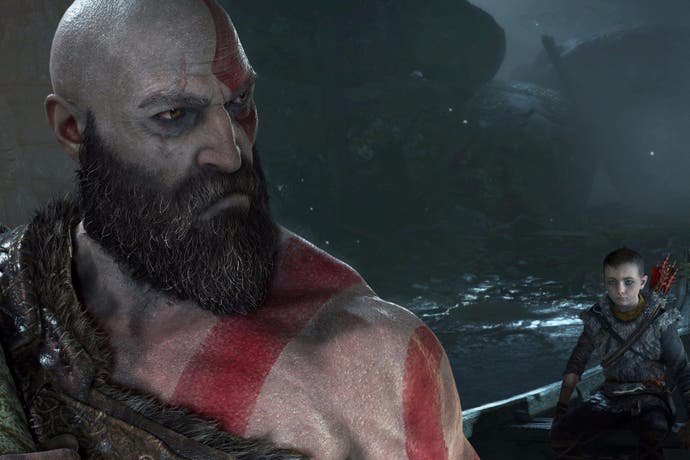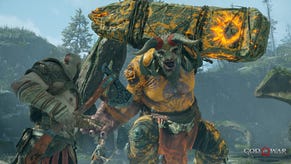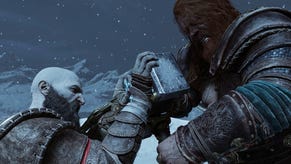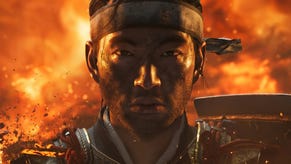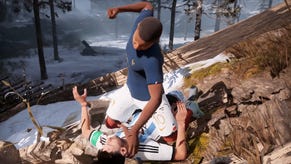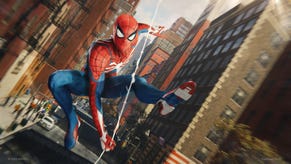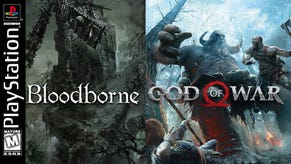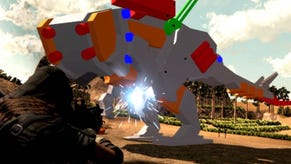God of War director explains why entire game has no camera cuts
"There was big resistance."
God of War (AKA Dad of War) is being described as a soft reboot for the series, as Kratos enters the world of Norse mythology for the first time alongside his son. The changes aren't just limited to the game's setting, however.
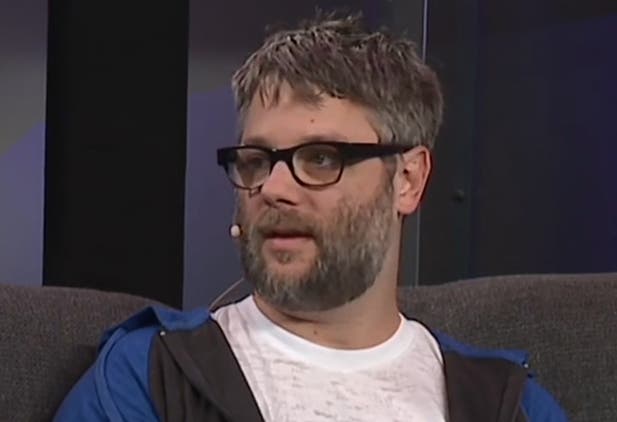
As we first saw in gameplay revealed at E3 2016, God of War has replaced its fixed cinematic camera shots with one positioned over Kratos' shoulder and the combat has been drastically reworked. The series which popularised Quick Time Events is ditching them altogether and, as I discovered in my interview with game director Corey Barlog, is also losing camera cuts. Things won't be the same in the world of the Norse gods.
Barlog was hired as lead animator for the original God of War back in the early 2000s, before being promoted to game director for its critically acclaimed sequel. After writing the script for God of War 3, he left Sony's Santa Monica Studio before the game was completed.
But now, he's back. At the head of a new team, Barlog is once again leading development on a major God of War title. I spoke to him at E3 last week about the new game and why it needed to feel so different to those that came before it.
God of War won't feature any camera cuts?
Barlog: The aspiration when I got back was to tell a much more personal story. God of War is traditionally known for these cinematic, pull back cameras, which I think are fantastic. But trying to get in there and really get to know the character a little more, I realised it'd be interesting if we got closer.
The vocabulary of film is camera cuts, it's how they communicate. But games are different. We don't really need to do that. We do it because it's a language that we're familiar with. It's hard to not do it, I'm realising that now, but it's a challenge that I really wanted to take on. I'd been looking for a project that I could do this on and I felt like this was the one. There was big resistance, but I have probably one of the best teams in the business, so as much as they were pushing back, I think they all kind of wanted this crazy challenge.
So yeah, there's never going to be a situation where we cut away and show you what someone else is doing. The trailer you watched shows snippets of the game, which unfortunately we've edited together, that's really because I want to give a good cross-section. In the actual game itself, you're never looking away. That doesn't necessarily mean that Kratos is always on-screen, there are things that motivate us to look away, but we're always returning and usually trying to frame Kratos so he's anchoring everything that you're looking at.
For me it really comes down to when you experience something amazing, you go see the Grand Canyon or something like that, you don't have a crane camera behind you giving you a vista shot to make it look amazing. That's a postcard. What you have is you, standing on the edge, looking around and just being in awe of what you're seeing. In games, I think we can do that. We can experience it from that perspective and I think that's amazing. It's not limiting. We're finding so many amazing things we can do with this: the sense of scale, even when you go against something that would be considered medium-size in previous games, it feels fantastic.
So as you walk into a conversation or an event, it'll just be a smooth transition, with players maintaining control of the camera? My worry is that we won't look at the right things...
Barlog: These are very much the concerns brought up by everybody. As we go through, there are times when I'm okay with that. There are times when it's sort of the theatre-in-the-round concept. Pay attention to whatever you want in this moment because really, you're experiencing it. If you miss something, that's alright, there are other opportunities. There are other times when we will take control. The player won't always have control, although that was the aspiration at the beginning. We eventually got hit by the sobering reality that sometimes you just have to nudge the player and let them see what you want them to see, but it's always a nudge. You always give them a little bit of a sense of freedom, so that it does feel like you're experiencing all of this in real-time. That's the beauty of games, it's all happening in real-time.
You clearly want this game to be a very different experience to previous God of War titles. Why? Is it because you felt the genre was changing, or is this a personal desire to do something different with the games you're working on?
Barlog: All of that. I think the industry, the gamers, the team, myself; we've all grown. We've evolved forward. Looking at what we're playing now and comparing it to 10 years ago, it's very different. That's not to say 10 years ago that wasn't awesome, or not even awesome today, it's just as creatives, I don't think we want to keep rehashing the same concept. I think for me especially, it's like looking back at your high school or college years and going: okay, that's who I was then, that's interesting, but this is how I view the world slightly differently now. I'm not a different person, I'm just seeing things through a slightly different lens.
Why now? Why was it this God of War that had you wanting to make big changes?
Barlog: I think about if I'd stayed and finished out God of War 3. I wrote the script for that and did the initial layout and just decided I needed to move on. I had some opportunities with people and was like, I want to learn from them. George Miller offered to teach me and I'm like, you know what? I'm not passing that up. I don't ever regret that decision and I think I have changed so fundamentally as a creative and I think that was the beginnings of being able to do something like this.
I was able to come back and realise the audience wants something kind of different. We still have some people that are upset that it's not the exact same thing, but to them I just say: give us a chance. If you liked God of War at all, I made the first two. I brought back a bunch of people that were in charge of that and this is the old band, man. We're just looking at it through a different lens.
From watching the trailer, it seems like the team and yourself are having fun subverting parts of the God of War formula. Everyone watching that trailer expected the World Serpent to be Kratos' enemy, for example. Has that been liberating?
Barlog: It's awesome that we even have expectations to subvert, but yeah, I think surprise and delight are so important. I watched a bunch of reaction videos last night in my hotel room because I did have a lot of people very concerned about the trailer, similar to last year. Watching those reactions and having that initial 'wait, what?' moment. It's great to take a risk and see it pay off. I think the essence of everything we're doing is about change. Drama comes from characters changing. If characters stay the same and nothing changes, there's really nothing to look at. You've got to change, whether it's painful or not.
I think being able to try different things and have people actually like it, that's great. We are very lucky.
